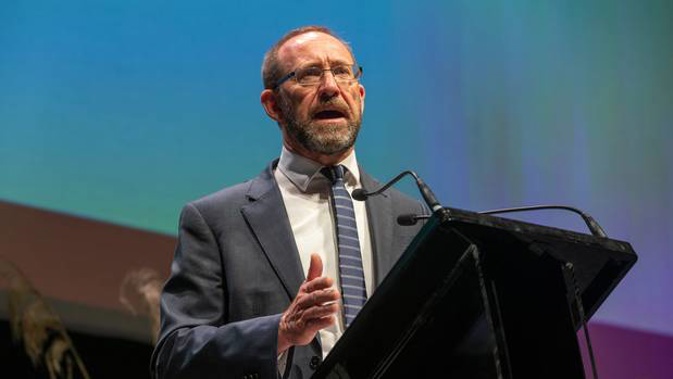
Justice Minister Andrew Little has laid out a picture of New Zealand's human rights before the United Nations.
Little led a delegation to the UN Human Rights Council in Geneva for New Zealand's universal periodic review.
He spoke before the council overnight on New Zealand's human rights, beginning with the state of the relationship between Pakeha and Māori.
Little, who is also Treaty of Waitangi Negotiations Minister, said the Treaty had been breached, leaving Māori "strangers in their own land".
"The impacts of colonisation continue to be felt today through entrenched structural racism and poorer outcomes for Māori," Little said in prepared notes.
"If we are to address the seemingly intractable problems facing some Māori, like the disproportionate representation of Māori in state care and our prisons, then we need to work constructively with Māori to find solutions."
Little said that along with Māori, Pasifika people, the LGBTQI community, new migrants and the disabled were also disadvantaged in New Zealand.
"For example, our LGBTQI community encounters higher levels of violence. Disabled people in New Zealand have less access to paid employment but higher living costs. Also, while New Zealand has been held up as a leader in gender equality, women are still not on an equal footing with men in our society," he said.
Little touched on mental health, New Zealand's world-first 'wellbeing Budget' and crime.
He called the justice system "broken".
"We have one of the highest incarceration rates per capita in the world, and it has risen in recent years. Māori are disproportionately represented at every stage of our criminal justice system, both as offenders and victims.
"We are struggling with prison capacity and prisoner violence," he said.
But Little said there was much to celebrate in New Zealand, pointing to the representation of women in Parliament and in the public service.
"We are proud of our record as a contributor, nationally and internationally, to human rights. We look forward to engaging [with the UN] to continue to better protect and promote the rights of New Zealanders."
The universal periodic review considers New Zealand's human rights records over the last five years.
The findings of the review are not legally binding, but are sometimes cited as persuasive in the courts and the Waitangi Tribunal.
New Zealand was last reviewed in 2014, when the Government accepted 121 of the UN's 155 recommendations.
Progress on the recommendations is monitored by the Human Rights Commission.
Take your Radio, Podcasts and Music with you









